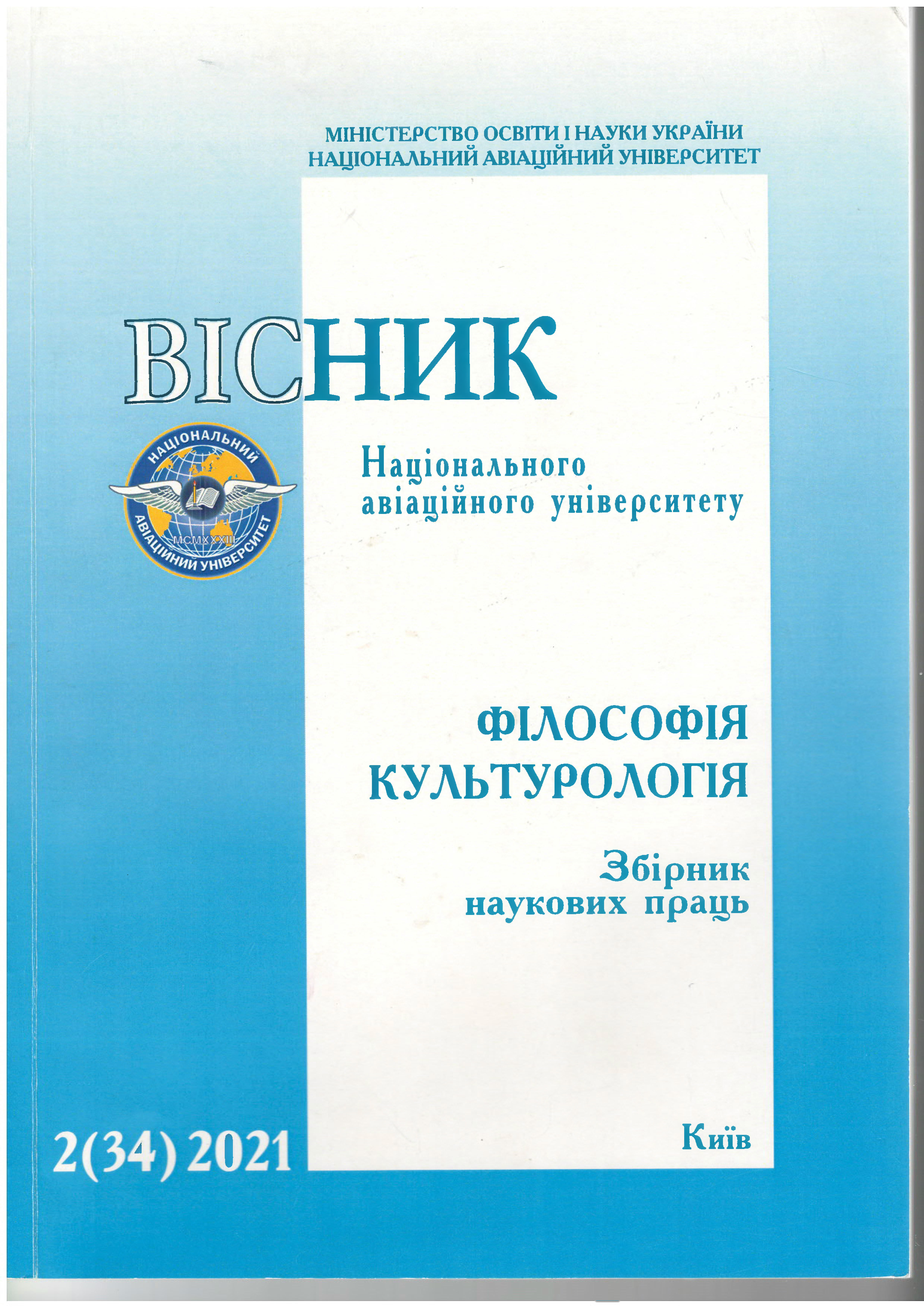HISTORICAL AND PHILOSOPHICAL ASPECTS OF THE FORMATION OF PHYSICAL CULTURE AND SPORTS
DOI:
https://doi.org/10.18372/2412-2157.34.16339Keywords:
agon, arete, kalokagatia, physical education, sportsAbstract
Introduction. The study of the history of sport can form an idea of social change and the nature of the sport itself, as it promotes the
development of basic human skills. As we delve into history, there is less and less evidence, which complicates the possibility of a
reliable theory of the origins and goals of sport. The aim and tasks. The article raises the problem of the general trends in the history of
physical culture and sports. The research methodology was determined in the process of analyzing the works of domestic and foreign
experts. The methodological basis of the study is the principles of unity of historical and logical, determinism, system, and integrity, etc.
The chosen methods are recognized structural-functional approach, comparative and systematic analysis, analytical-descriptive and
hermeneutic and general scientific methods. Research results. In particular, as a study result, five theories have been identified: game
theory; theory of excess biological energy; theory of war; labor theory; theory of initiation/magic. The author expresses the opinion that
there is no importance which theory should take the first place from the philosophical and cultural approach used in the study. The
article uses a differentiated analytical approach, which allows us to hypothesize that these theories should not be considered as
separate, but in the aggregate of their interaction. Discussion. Each of the theories has its supporters. The preference depends on the
cultural-historical conditions the analysis of physical culture and sports is held in. Conclusion. The roots of physical culture and sports,
which date back to the ancient world, are outlined. It is noted that the brightest description of sports competitions and traditions in the
field of physical education and sports dates from Ancient Greece. It is emphasized that it was Ancient Greece, the "foundation of
Europe", some certain concepts related to "sports competitions" arose in. All of them contributed to philosophical thinking, bringing the
concepts of "agonism", "aconite", "arete", "echeheria", "kalokagatia" and the phenomenon of "heroization".
References
Бауэр Сьюзен Уайс. История Древнего мира: от истоков
цивилизации до падения Рима; пер. с англ. В. Гончарова,
Н. Тартаковской. – М.: ACT: Астрель, 2011. – 988 с.
Іваній І. В. Історія фізкультурно-спортивного руху:
методичні рекомендацїї / І. В. Іваній. – Суми: СДПУ імені
А. С. Макаренка, 2018. – 141 с.
Косвен М. О. Очерки истории первобытной культуры
М.: Издательство АН СССР, 1957. – 241 c.
Кубертен Д. «Ода спорту» [Електронний ресурс] /
Д. Кубертен. – 2013. – Режим доступу до ресурсу: https://favorite -
verses.livejournal.com/233802.html.
Павсаний. Описание Эллады. В 2 т. Пер. С. П. Кондратьева
под ред. Е. Никитюк. Пред. Э. Фролова. Пред. Е. Никитюк. – М.:
АСТ-Ладомир, 2002. – Т. 1. – 496 с., Т. 2. 2002. – 512 с.
Плеханов Г. В. Теория искусства и история эстетической
мысли. Избранные труды. – М.: Издательство Юрайт, 2020. –
с. – Серия: Антология мысли.
Поліщук Р. Гармонійний розвиток та агоністика
(змагальність) в творах Гомера «Іліада» та «Одіссея» / Р. Поліщук
// Українська тіловиховна традиція; ред. кол: Валерій Джунь,
Степан Кость, Андрій Сова (упоряд. і відп. ред.). – Львів, 2020. –
Вип. 1. – С. 5-13.
Рейнак Соломон. Орфей, всеобщая история религий.
Париж: 1910. – 540 с. – Режим доступу до ресурсу: http://padaread.
com/?book=29082
Савостина Е. А. Миф и культ героя // Жизнь мифа в
античности. Материалы научной конференции «Випперовские
чтания – 1985». – Вып. 18. Часть 1. Доклады и сообщения. – М.,
– С. 101.
Спенсер Г. (1897). Основания социологии / Г. Спенсер. –
СПб.: Издание Л. Ф. Пантелеева – 473 с. – Режим доступу до
ресурсу: http://libo.lib.zt.ua/jspui/handle/123456789/255
Шиллер Ф. Письма об эстетическом воспитании
человека. Т. 6. – М.: Художественная література, 1957. –
С. 251-359.
Crowther B. Sport in Ancient Times. Praeger Publishers,
– 183 p.
Flavii Philostrati Opera, Vol 2. Philostratus the Athenian.
Carl Ludwig Kayser. in aedibus B. G. Teubneri. Lipsiae. Retrieved
from: 1871.https://www.perseus.tufts.edu/hopper /text?doc=
Perseus %3Atext%3A2008.01.0600.(accessed (12/06/2020).
Gary Barber (1 February 2007). Getting Started in Track
and Field Athletics: Advice & Ideas for Children, Parents, and
Teachers. Trafford Publishing. – p. 25.
Guttmann A.(1978) From Ritual to Record: The Nature of
Modern Sports. New York: Columbia University Press,. [in Eglish]
Győző Vörös (2007). Egyptian Temple Architecture: 100
Years of Hungarian Excavations in Egypt, 1907-2007. American
Univ in Cairo Press. pp. 39
Hawhee, Debra. "Agonism and Arete". Philosophy and
Rhetoric 35. – 2002. – P. 187.
Kendall Blanchard (1995). The Anthropology of Sport: An
Introduction. ABC-CLIO. pp. 99
Lenk H. (1982). Auf der Suche nach dem Wesen des
Sports: Ueberlegungen im Anschluss an A. Gutmann, Vom Ritual
zum Rekord // Sportwissenschaft. Bd. 12. № 2. Р. 202-213.
Miller, Stephen. Arete: Greek Sports from Ancient
Sources. – London, England: University of California Press.
(2004). – P. 149-152.
Mondal, P.K., & Mridha, S. (2015). A Study on selected
anthropometric characteristics of height-weight matched female
athletes and non-athletes. IOSR Journal of Sports and Physical
Education. Volume 2, Issue 5 (Sep. – Oct. 2015). – P 41-45.
Nigel B. Crowther (2007). Sport in Ancient Times.
Greenwood Publishing Group. Р. 15-16
Pausanias, Description of Greece. 1918. Cambridge, MA,
Harvard University Press; London, William Heinemann Ltd.
https://www.perseus.tufts.edu/hopper/text?doc=Paus.+9.30.7
Polischuk R. Philosophical-anthropological and sociophilosophical
vision of sport / Rostyslav Polischuk // European
philosophical and historical discourse. – 2019. – № 3. – С. 93-100.
Robert Crego (2003). Sports and Games of the 18th and
th Centuries. Greenwood Publishing Group. – 274 р.

